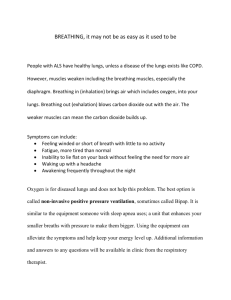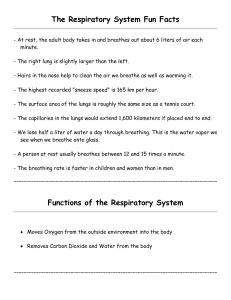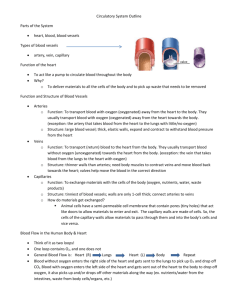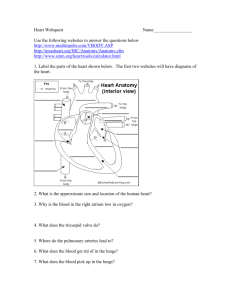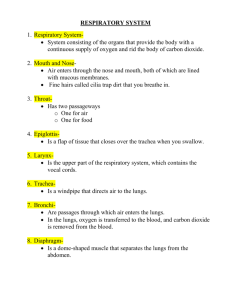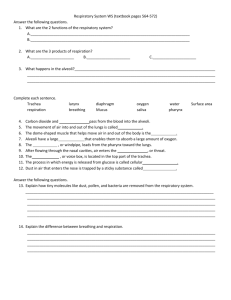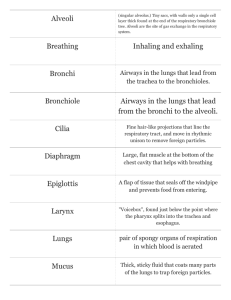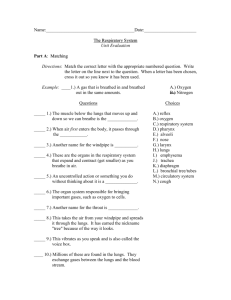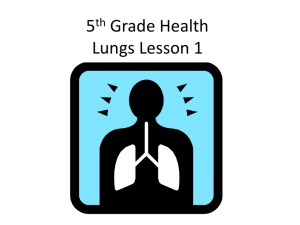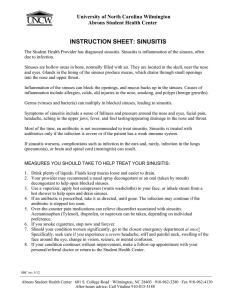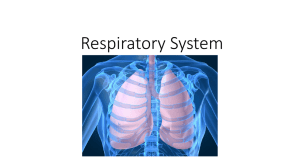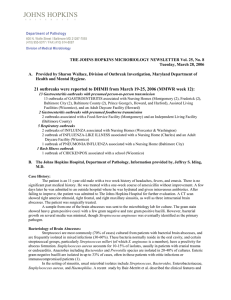Respiratory - local.brookings.k12.sd.us
advertisement
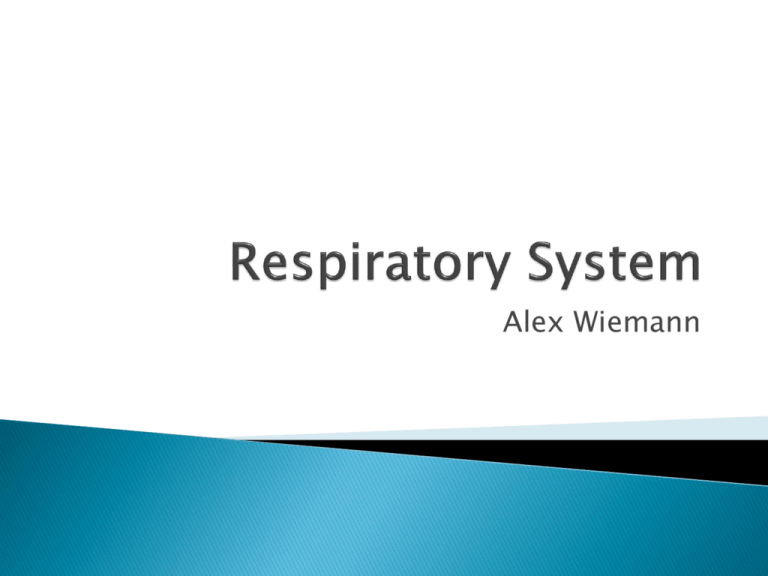
Alex Wiemann The respiratory system supplies the blood with oxygen in order for the blood to deliver oxygen to all parts of the body. The respiratory system accomplishes this through breathing. The walls are close to a dense network of capillaries for gas exchange between air and blood. Millions of small alveoli provide large total surface area for greater gas exchange. Moist walls speed up diffusion of dissolved gas particles (oxygen and carbon dioxide). Thin walls (a single layer of flattened cells) allow for quick diffusion. Elastic walls allow for greater ventilation and thinner walls during exercise. After oxygen enters the lungs, it diffuses into the blood and triggers reactions. The oxygen reacts with and attaches to hemoglobin. ◦ This reaction with hemoglobin produces excess H+ ions which react with HCO3- , producing H2CO3. This carbonic acid decomposes to CO2 which diffuses out of the bloodstream. Breathing begins when a person inhales air through the nose or mouth. The air is pulled into the body and travels to the lungs because the expanding volume of the lungs creates low pressure. They fill up with air, causing them to expand. When the lungs expand, the diaphragm contracts and goes down, creating pressure in the chest. This is what causes the rise and fall of the chest while a person is inhaling and exhaling air. The pressure created by the lungs allows for the air to be exhaled with ease. Sinusitis is the infection of the sinuses when they become swollen or irritated. Symptoms include a stuffy or runny nose and a slight fever. Sinusitis affects everyone. Antibiotics, decongestants, and antihistamines all help with the treatment of sinusitis. Bronchiolitis is caused by an infection that affects bronchioles that lead to the lungs. When these airways become irritated, they swell and fill with mucus, making breathing difficult. Symptoms include stuffiness, a runny nose, a mild cough, and a mild fever. Bronchiolitis most often affects infants and young children since their small airways can much more easily become blocked than those of older kids or adults. The best treatment for most kids is time to recover and plenty of fluids. http://www.fi.edu/learn/heart/systems/respiration.h tm http://ibbiology.wetpaint.com/page/Describe+the+f eatures+of+alveoli+that+adapt+them+to+gas+exch ange http://www.ehow.com/how-does_5117934_processbreathing.html http://kidshealth.org/parent/infections/bacterial_vira l/sinusitis.html?tracking=P_RelatedArticle# http://www.elmhurst.edu/~chm/vchembook/261carb ondioxide.html http://sivanandammsw.blogspot.com/2010/10/healt h-effects-of-air-pollution.html
